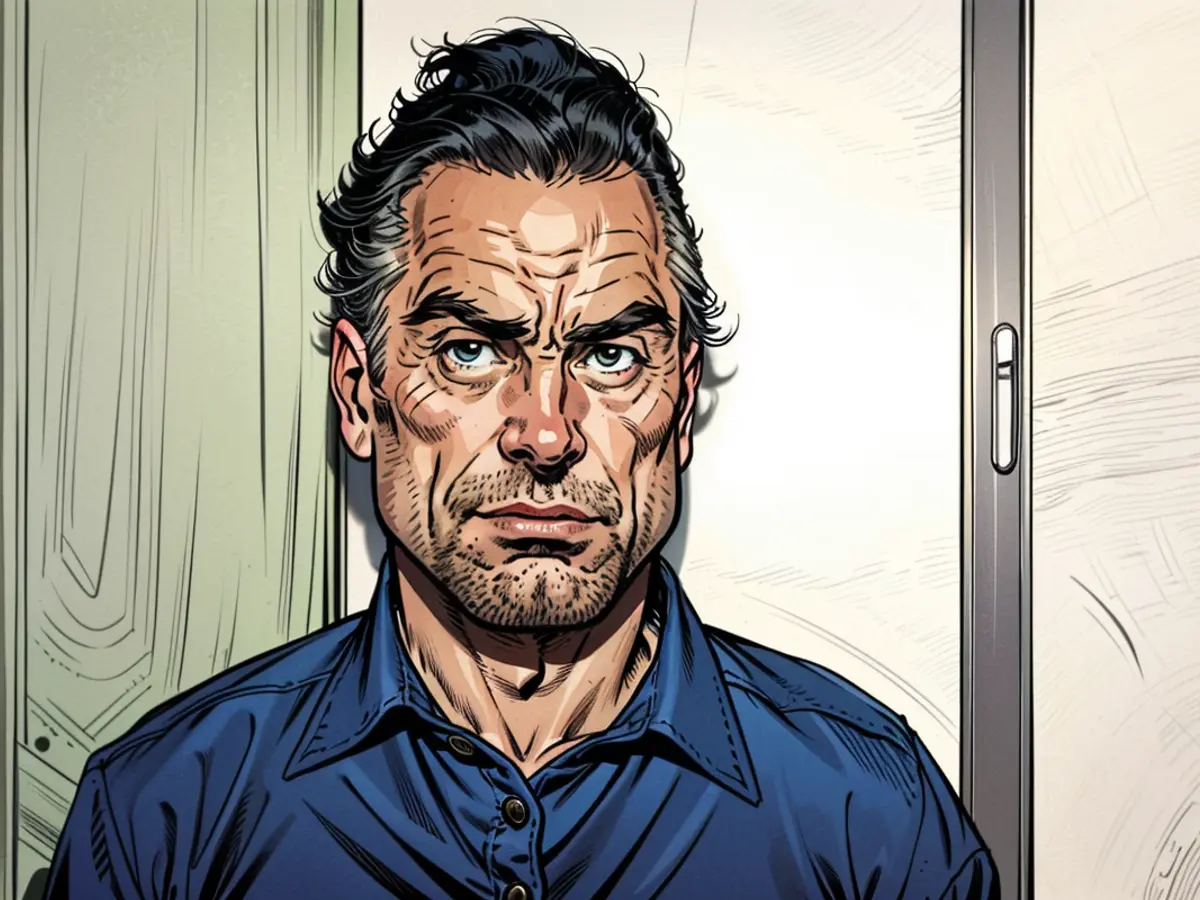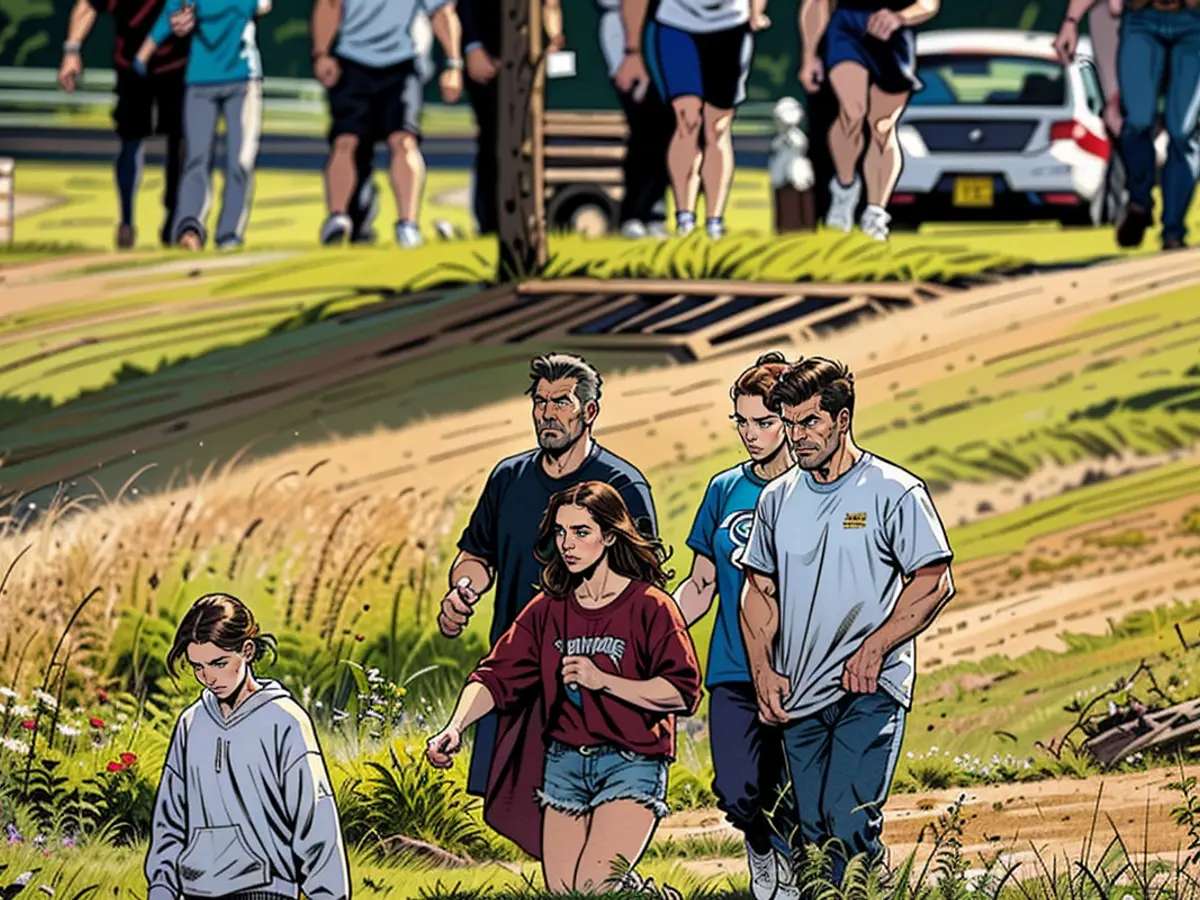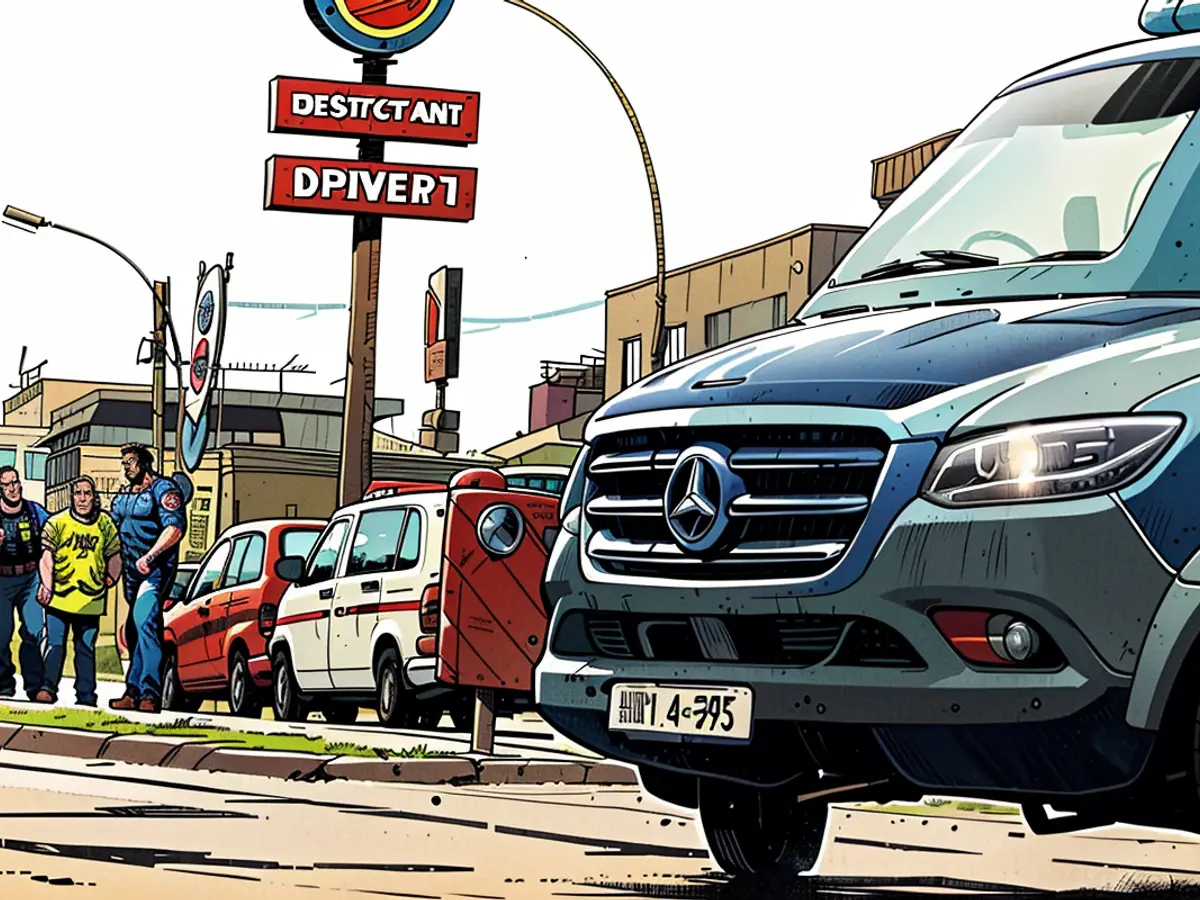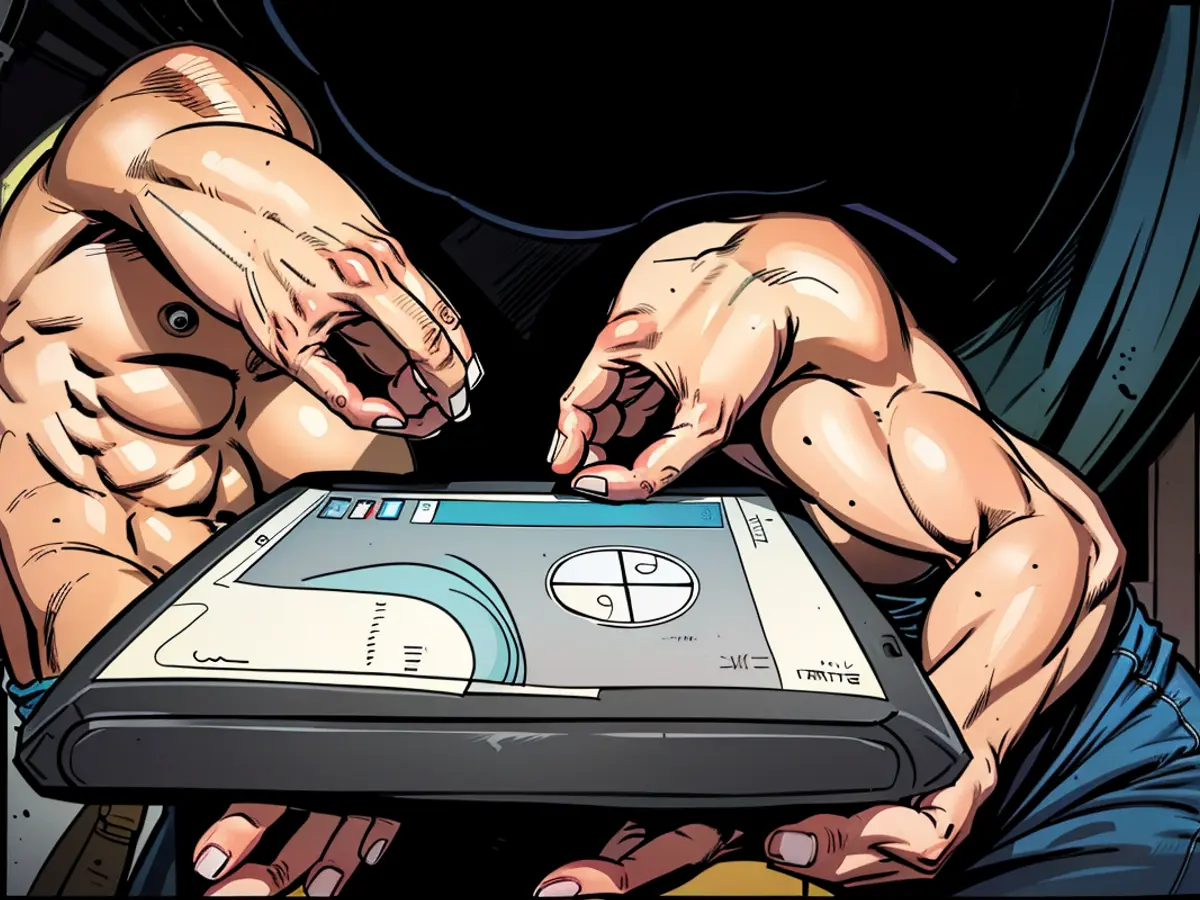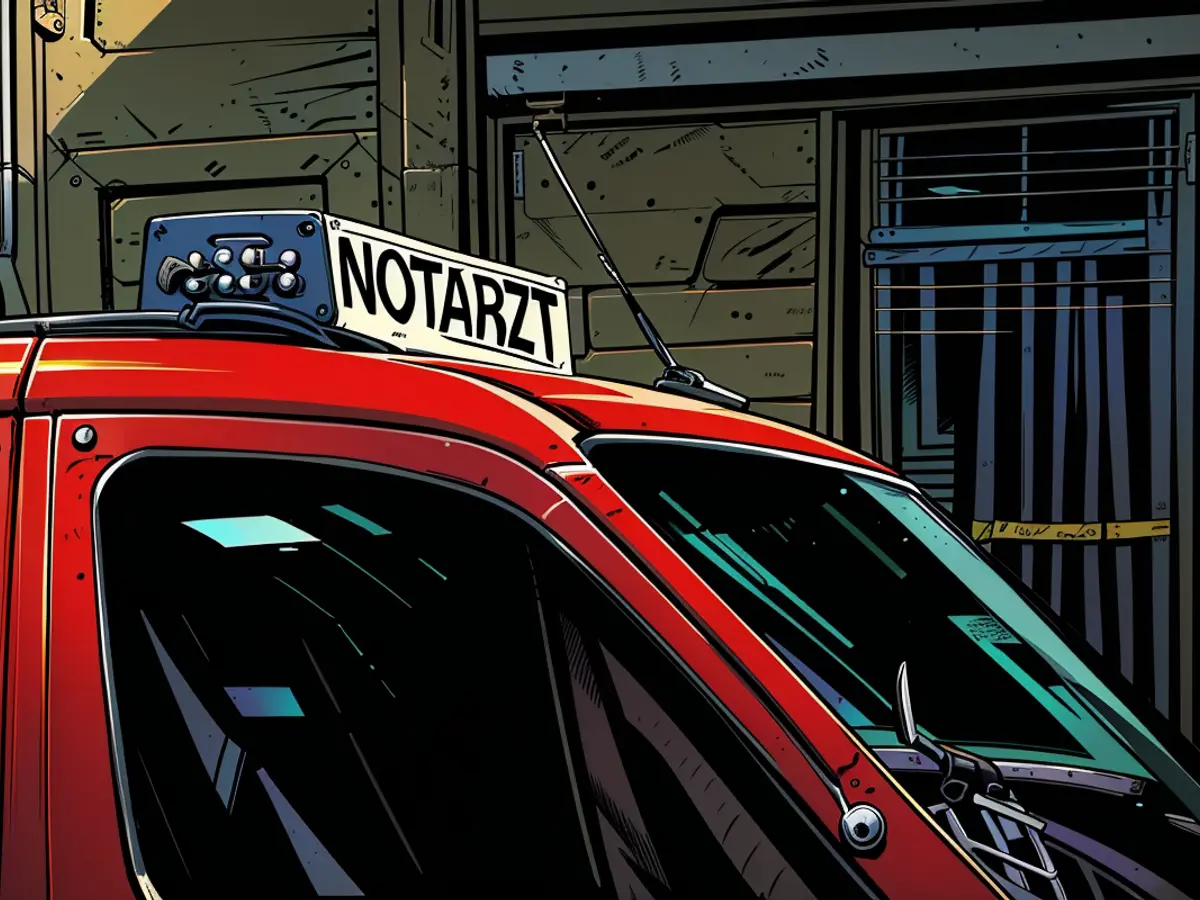- Two and a half decades of torment in basement confinement, marking the day when Josef Fritzl imprisoned his daughter.
On August 28, 1984, a radiant autumn day, Elizabeth Fritzl follows her father Josef into the basement, oblivious to the fact that she'll spend the subsequent 24 years secured there. Josef Fritzl alleges on that Tuesday that he requires assistance transporting a door. She is unaware that this door is a component of a bunker that her father has constructed over the past six years - solely to confine his 18-year-old daughter.
From that point forward, the young lady is condemned to livelihood in an underworld prison: 55 square meters, three rooms, a refrigerator, a radio, a television, a video recorder, a kitchenette, and a washing machine. Her father had meticulously arranged this miniature dungeon, which included a 300-kilogram heavy, concealed door behind a bookshelf, which could only be opened via a keypad that he controlled. Eight additional, often 500-kilogram heavy, locked doors now obstructed her path to liberation.
Fritzl obtained the authorization for Ybbsstraße 40 in Lower Austria's Amstetten's expansive accommodation from the building authority as early as October 31, 1978 - nine compact apartments and a typical basement with three rooms. Constructing a basement extension was not an anomaly during the era of the Cold War; numerous individuals even erected whole bunkers out of fear of a nuclear strike. For months, he poured concrete into molds, drilled, excavated, and fastened at the unassuming-looking addition.
Josef Fritzl deceived authorities during bunker construction
On July 26, 1983, the city granted the permission for the basement rooms' usage. To deceive the authorities, he sealed off all the underground labyrinth's entrances. He installed the metal doors leading to the underground imprisonment at a later date. However, Elizabeth's suffering began years before her father locked her up there.
Josef Fritzl was born in Amstetten, Austria, on April 9, 1935. His mother Maria separated early, and the father disappeared from the small family's existence. Maria Fritzl raised Josef with an iron hand, and they had limited resources, as well as a war. Her playmates referred to him as "Sepperl" or "Pepperl," and he was a capable student, with laudatory remarks from his instructors.
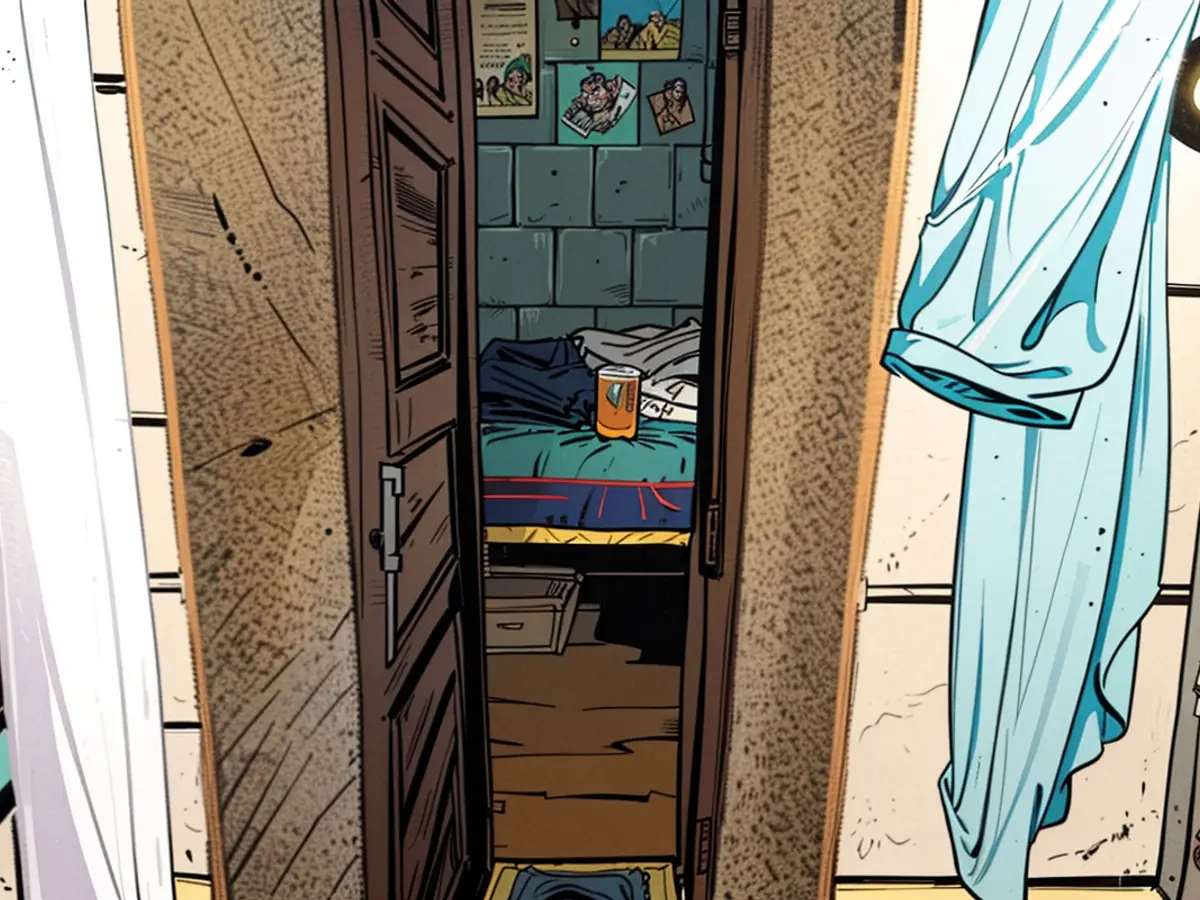
Following the war, Josef learned to be an electrician and was subsequently listed in police records as a "technical employee." He worked for the large steel company Voestalpine in Linz, then for a construction materials supplier, and as a representative of a machine factory. At the age of 22, he married 17-year-old kitchen helper Rosemarie - a simple woman who rarely questioned. Opposite to her husband, she was loving, maternal, compassionate, and, above all, submissive to the point of self-denial.
Elizabeth Fritzl loses her freedom at the age of 18
Elizabeth is the fourth child of Josef and Rosemarie. The couple had five sons and four daughters in total. Elizabeth was born on April 6, 1966. She received the most punishments from her oppressive father. When she was eleven years old, he sexually abused her for the first time. At 15, she began an apprenticeship as a restaurant specialist at the "Rosenberger" motorway service area on the A1 near Strengberg. Yet, she could no longer endure it at home: On January 28, 1983, she did not return home from work but fled with a friend. After three weeks, the police found her in Vienna and returned her to her parents. She completed her apprenticeship and found employment in Linz. However, she would never take advantage of this opportunity. Because her father had other plans. Once she was gone, he would no longer have control over his daughter.
To prevent this, the trained electrician Josef pushed Elizabeth into the bunker he constructed that day, anesthetized her with ether until she fell unconscious, and handcuffed her. After Elizabeth's disappearance, Joseph and his wife Rosemarie reported it to the police. Josef informed the officers that he suspected she had joined a cult. He later provided a letter to support this claim - posted on September 21, 1984 in Braunau am Inn, Adolf Hitler's birthplace. In it, Elisabeth stated that she was tired of living with the family and warned her parents not to search for her - otherwise, she would leave the country. Of course, the young woman had not written the letter voluntarily, but had been compelled to do so by her father. The police considered this sufficient to close the case, thereby providing Fritzl the freedom to carry out his sinister plans.
Almost daily, he brought his daughter sustenance and other articles to her underground prison - and regularly took advantage of her during these opportunities - without making eye contact. Sometimes, he even visited her multiple times a day. Following this, she became pregnant for the first time. To prepare for the birth, Josef Fritzl provided his daughter with disinfectant, a filthy pair of scissors, and a book about childbirth from the 1960s. In 1988, their first daughter was born below ground. Elizabeth Fritzl had been living below ground for four years already. Above ground, her father led his parallel life.
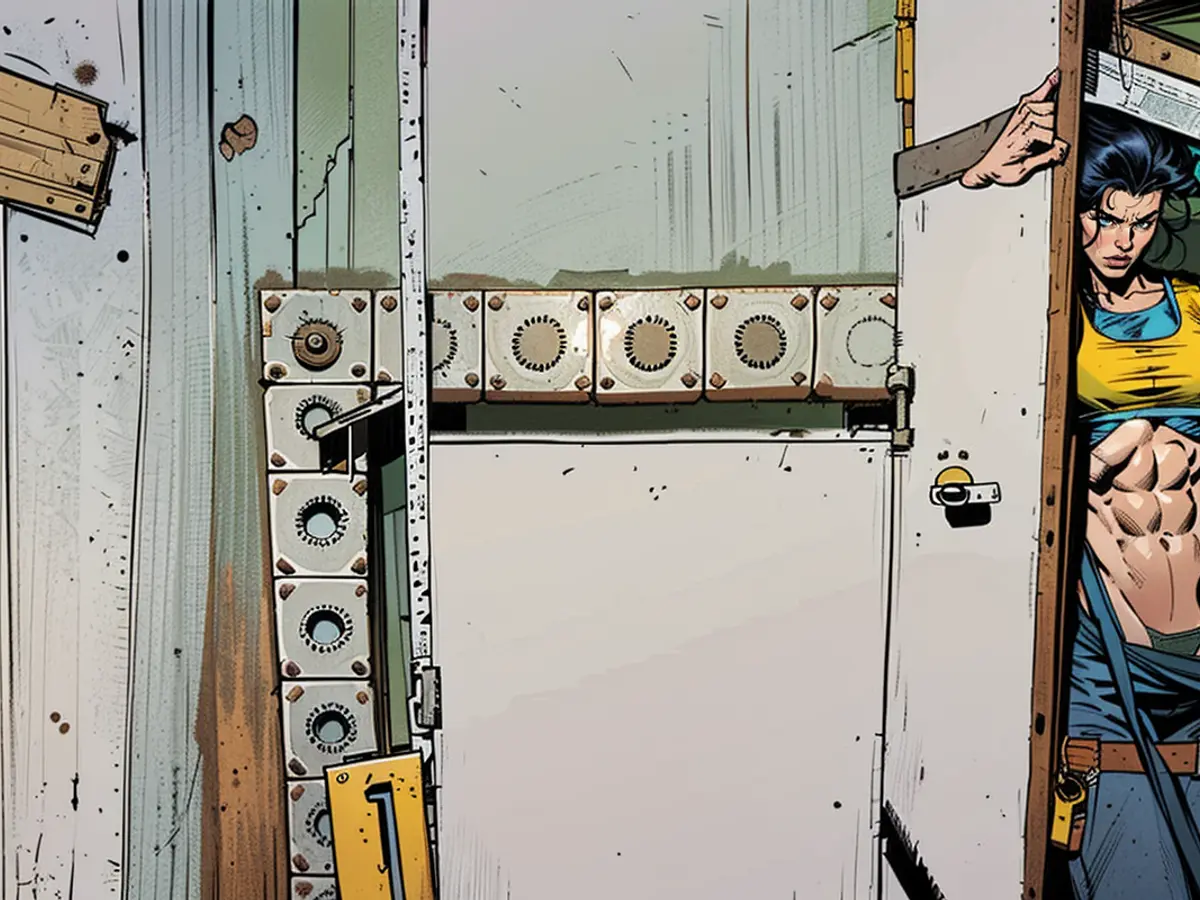
Occasionally, his authoritarian side emerges from his polished exterior, usually when things don't go his way. He might lambaste his wife in public or even physically discipline one of his two sons for overfishing at Mondsee for a few extra minutes. In 1974, there were suspicions that he intentionally burned down his own inn to collect insurance money. In 1982, he was briefly arrested when the "Seestern" caught fire again and a gas cylinder was discovered at the scene. The investigators were certain it was arson, but the case was dismissed due to lack of evidence.
During interrogations, he was seen as a "freaking tough guy" who enforced his will with brutal force by police officers at the time. A former superior later referred to him as "borderline genius," while a colleague remembered him as always appearing well-dressed, like a diplomat. Prior to abusing Elisabeth, he had sexually assaulted a woman in 1967. He broke into her house while she was alone, held her at knifepoint, and raped her. For this crime, he served 12 months of an 18-month prison sentence.
In 1990, Elisabeth gave birth to a son, followed by a girl in 1992 and another daughter in 1994. With space becoming limited, he allowed the cramped living quarters to be expanded, but forced the family to dig with their bare hands. The low ceilings became a challenge for the son, who was forced to walk around barefoot due to his size. In 1996, twins were born, but one of the sons died three days later from respiratory illness. Josef disposed of the body in the heating oven.
He threatened to kill them all if they tried to escape. He allowed the two daughters and the surviving twin to visit the upper level and left them at the doorstep on Ybbsstraße with ages ranging from nine to 15 months. Three forged letters from the daughter were sent out, pleading for understanding and care. The second daughter, who required surgery a few days after being discovered in Linz, was adopted. The other two children were taken in by Josef and his wife, Rosemarie, as "relatives in need of care" to receive additional government assistance. Around 12,000 euros a year in addition to family allowance was provided by the youth welfare office in Amstetten. The Fritzls were given an excellent report by the office. Meanwhile, in 2002, a son named Felix was born and remained in the dungeon with his mother and siblings.
Elisabeth's eldest daughter collapsed.
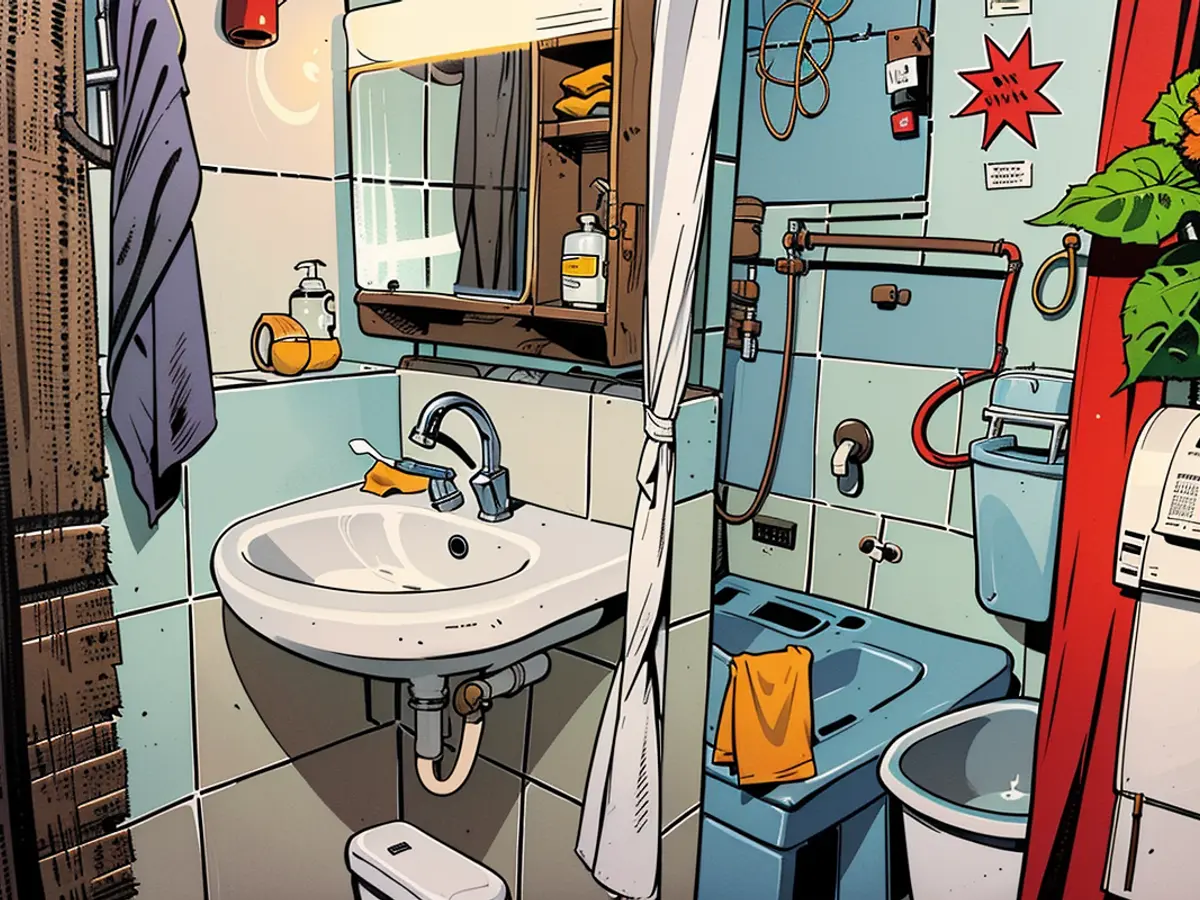
Elisabeth lovingly cared for her children in the hidden rooms. She requested a UV lamp and vitamin D supplements to prevent bone softening due to lack of sunlight, and books for her children to learn to read and write. She also insisted on watching TV and listening to the radio to learn about the outside world. Medical help was denied until April 19, 2008, when the eldest daughter collapsed unconscious. At 73, Josef took her to the hospital at Elisabeth's insistence.
The 19-year-old was emaciated, with pale, almost translucent skin and visible veins. Her rotten teeth made her appearance even more unsettling. She convulsed, biting her tongue so hard that blood flowed from her mouth. The convulsions caused oxygen deprivation, and her organs were at risk of failure. She was in critical condition. The doctor began necessary procedures: ventilation, induced coma, kidney replacement therapy, and other life-saving measures. Josef introduced himself as her grandfather, saying she had been found lying on the stairs with a letter from his supposedly missing daughter, claiming she had never been to a hospital and was very shy.
The doctor contacted the police with Josef's consent to speak with the mother about her medical history. When Elisabeth saw an appeal in the local broadcast "Lower Austria Today" with the title "Dying Man Seeks Mother," she asked her father to allow her to make contact. Two weeks later, on April 26, a thin woman with white hair appeared at the clinic reception. Soon after, Josef was arrested. The officers asked for the code for the electric door lock and searched the cellar. The two remaining children had already been moved upstairs at this point. Josef had previously told his wife that the daughter had returned with the two children. Three days later, DNA evidence confirmed that all six children were Fritzl's biological children.
In the cellar, they found more letters written by Josef to his daughter, indicating that he planned to release her due to his advancing age, as he wrote a letter to her announcing her release and that of the children for May or June due to upcoming birthday celebrations.
In March 2009, Joseph Fritzl, often referred to as the "incest monster" by the media, was charged with manslaughter, rape, false imprisonment, extreme coercion, slavery, and incest. The sentence: Life imprisonment. According to Fritzl's lawyer, his client's desire for a second family was a significant motivation for his actions.
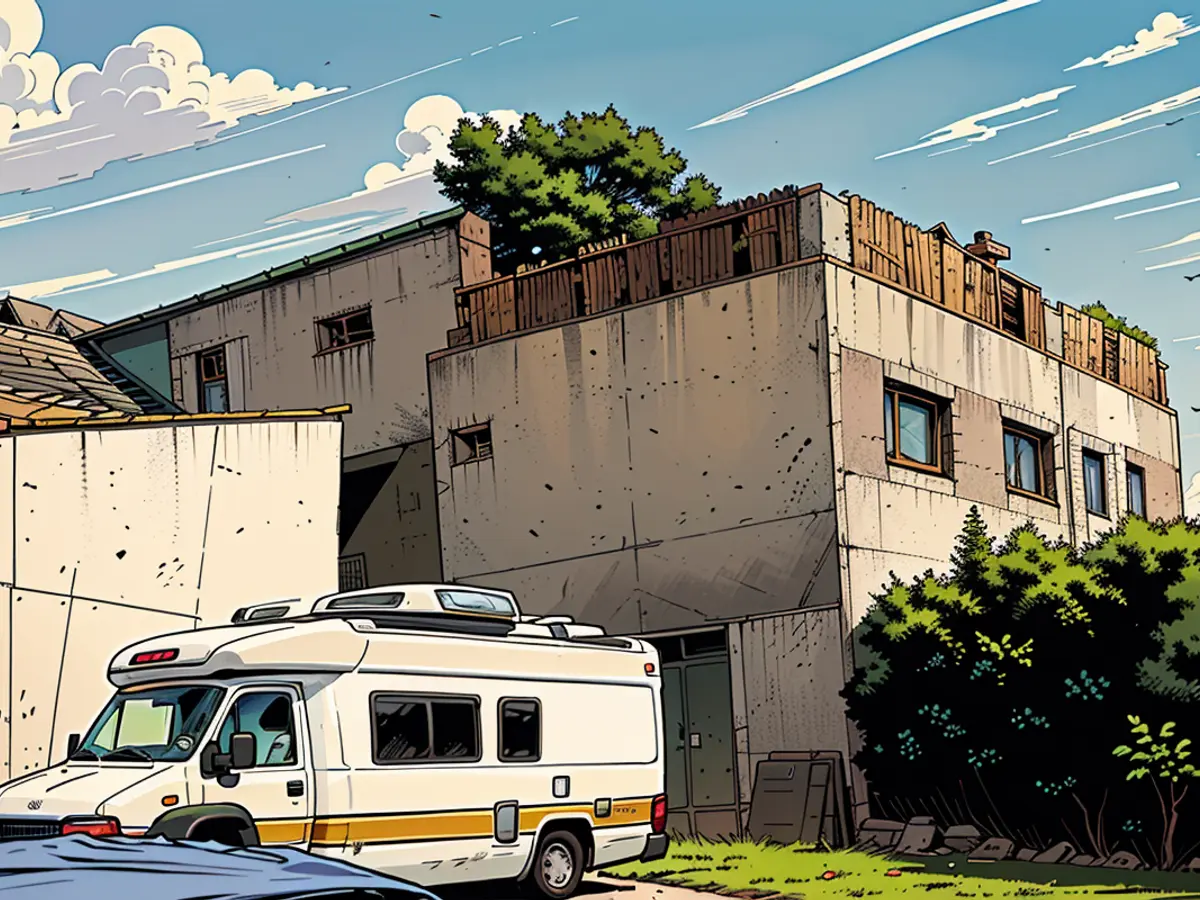
He currently resides in the forensic psychiatry section of Stein prison, under an alias. Following the publicization of his crimes, his wife Rosemarie promptly filed for divorce and cut ties. His attorney, Astrid Wagner, revised and published Fritzl's memoirs as a book. In an interview with Der Stern last year, Wagner disclosed that he maintains a well-groomed appearance in his cell, with neatly styled hair. His sexual drive has reportedly diminished due to age, as per the latest assessment, and he's been deemed incurable. Due to his belief that the TV speaks to him, the judge declined a petition for release without even ordering a new psychiatric review. In June 2022, the Higher Regional Court in Vienna initially ruled that the 89-year-old Fritzl wouldn't be transferred to an Austrian regular prison. However, in May of this year, a decision was made for him to transition to the regular prison system. They claimed there's no longer any need for the forensic-therapeutic center due to his deteriorating health and dementia.
A permanent release from the regular prison system - and thus, freedom - is currently unattainable due to special precautionary reasons. Although Fritzl poses no threat, it remains uncertain if he won't engage in further crimes.
Fritzl's basement dungeon was reinforced with 300 tons of special concrete in 2013, and the upper apartments were rented out later.
Elisabeth now resides with her children under a different name in an Austrian village. The two-story house, whose location is confidential, is under constant surveillance via video and guarded by security personnel.
compress the timeline of the crime: Fritzl's astounding double life began in the early 1980s. He constructed a prison in the basement of his residence for his own daughter.
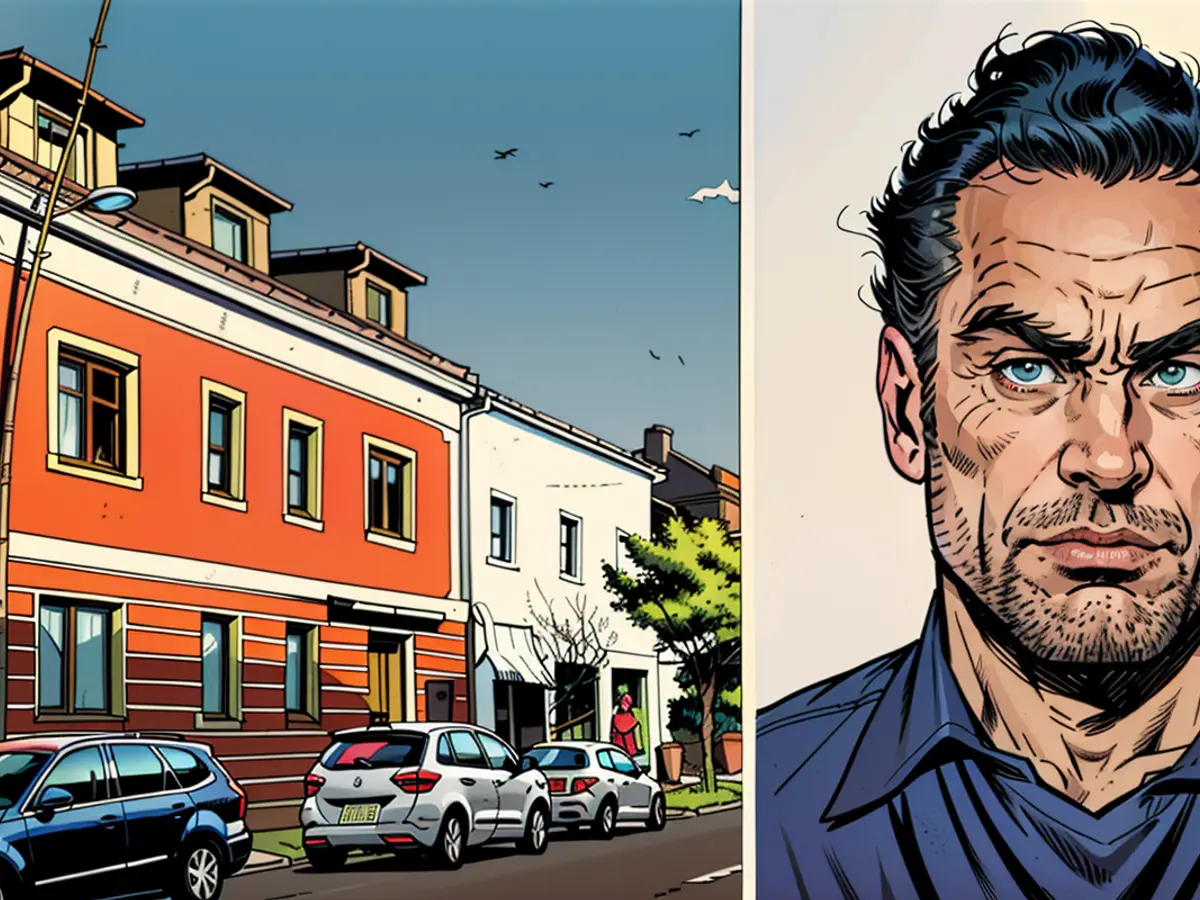
Watch the clip to witness the crime timeline: Josef Fritzl's extraordinary dual existence.
The construction of the basement prison, which would ultimately become Elizabeth Fritzl's confinement, was carried out amidst the tension of the Cold War. This was a period when many individuals were building bunkers out of fear of a nuclear strike.
Josef Fritzl's actions to deceive authorities were evident in his sealing off all the underground labyrinth's entrances and installing metal doors leading to the imprisonment at a later date.
Read also:
- Mannheim authorities respond emotionally to the passing of a fellow officer.
- Earth depot with weapons, plans for attack on Jews - what we know about the Hamas arrests
- Böhmermann took apart the hype company More Nutrition - now customs have raided it
- Böhmermann took apart the hype company More Nutrition - now customs have raided it
